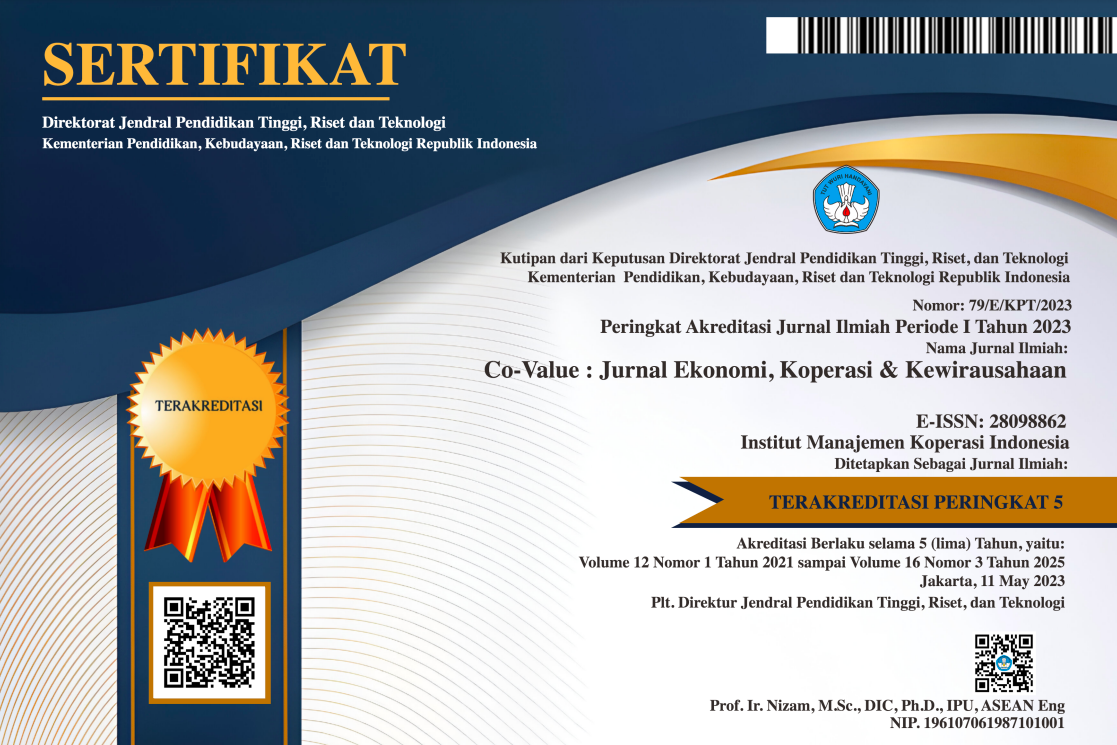Analysis of Fraud Hexagon Theory on Fraudulent Financial Reporting Based on The Role of Intellectual Capital As A Mediator That is Influenced by Earnings Management Practices
DOI:
https://doi.org/10.59188/covalue.v15i01.4444Keywords:
Fraudulent Financial Reporting, Intellectual Capital, Profit Management, Hexagon FraudAbstract
Fraudulent financial reporting is a serious problem faced by companies throughout the world. This fraud can have fatal consequences for the company, such as loss of investor confidence, decline in share value, and even bankruptcy. There are various theories that can be used to analyze financial statement fraud, one of which is the fraud hexagon theory. This research aims to analyze the fraud hexagon theory of fraudulent financial reporting based on the role of intellectual capital as a mediator which is influenced by earnings management practices. In this study, researchers used qualitative methods with data collection techniques through literature studies. The data collected was analyzed through three steps, which included data reduction, data presentation, and making conclusions. The findings in the study show that the Fraud Hexagon theory provides a comprehensive framework for understanding the factors that encourage fraudulent financial reporting by including six key elements: pressure, opportunity, rationalization, competence, arrogance and collusion. In this context, earnings management practices are often the main trigger. The pressure experienced by management to meet financial targets can encourage them to carry out earnings management, which in turn increases the risk of fraudulent financial reporting. Opportunities for fraud often exist due to weaknesses in internal controls, which allow manipulation of financial data without detection.






